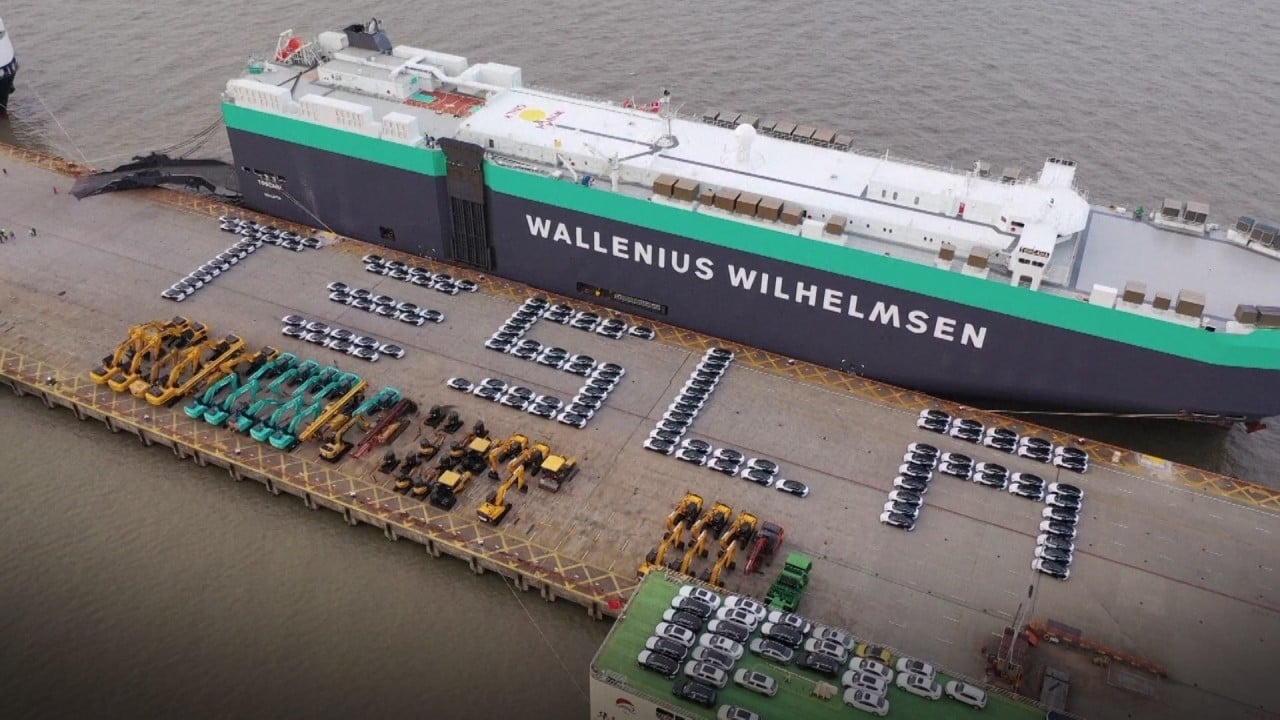
Tesla rival NIO becomes first Chinese EV firm to run out of chips, halts production and lowers output projection
- Shanghai-based company forced to suspend production for five days at assembly line in Anhui province
- Sales target revised downwards less than a month after founder says it has enough chips to support deliveries for the quarter
NIO, China’s leading smart electric vehicle (EV) start-up, has become the first such carmaker to fall victim to a global shortage of automotive chips.
The Shanghai-based company said on Friday that the shortage had forced it to temporarily suspend production for five days at its assembly line in Anhui province.
Moreover, the company said its sales target for the quarter had also been affected – less than a month after founder and chief executive William Li said during an earnings briefing on March 2 that the carmaker had enough chips to support deliveries in this period.
NIO sees sales slump as Tesla’s cut-price Model Y steals its thunder
“The overall supply constraint of semiconductors has impacted the company’s production volume in March 2021,” NIO said, adding that it would deliver 19,500 vehicles in the first three months of this year, below a projected target of 20,000- 20,500 units.
The shortage has already ensnared some of the biggest names in the cars industry globally. Ford Motors slashed its first-quarter roll-out, including that of its bestselling F-150 trucks, by 20 per cent, while General Motors said extended down times in Kansas, Canada and Mexico until mid-March would erode its 2021 bottom line by between US$1.5 billion and US$2 billion.
The output of conventional cars might drop by up to 700,000 vehicles globally, or about 4 per cent of production worldwide, in the first quarter, according to a forecast last month by IHS Market.
NIO’s shares in New York surged by more than 1,100 per cent last year amid heightened expectations for EV use in mainland China, before tumbling 22 per cent this year. The stock, however, closed at US$37.94 on Thursday, up 2.7 per cent from a day earlier.
Last month, analysts said Chinese smart EV companies were unlikely to face production slowdowns this year, because they had secured enough chip supplies. “Smart EV companies were believed to be immune to the chip issue,” said David Zhang, an analyst with North China University of Technology’s research centre for automobile industry innovation. “A deficient chip supply will continue to affect production and sales of the world’s car making industry,” he added.
NIO sells US$1.3 billion worth of convertible notes as its ADS hits all-time high in New York
NIO and other Chinese smart EV makers use chips in their microcontroller units, as well as to support safe and accurate intelligent driving technology, which includes cruise control, autonomous driving and self parking. Industry officials said that because of their low base, global semiconductor companies were able to meet demand from these EV start-ups.
The shortage comes at a delicate time for NIO, as well as other Chinese companies such as Li Auto and Xpeng. These companies are taking on US carmaker Tesla, which dominates the premium EV segment in China, the world’s largest EV market.
Last month, the Palo Alto, California-based company sold 4,630 Model Y sport-utility vehicles (SUVs), compared to 1,641 units in January, according to data compiled by the China Passenger Car Association.
Tesla faces a rival with a record 621-mile range as NIO’s ET7 raises the ante
A 30 per cent discount on the newly launched SUV might have also affected Tesla’s Chinese rivals. NIO sold 5,578 units in February, 22.8 per cent down from the 7,225 sold in January. Xpeng’s February sales slumped 63 per cent from a month earlier to 2,223 units. Li Auto delivered 2,300 units last month, 57 per cent less than January.
The JAC-NIO manufacturing plant in Hefei, capital of China’s eastern Anhui province, has a targeted annual capacity of 120,000 units.


